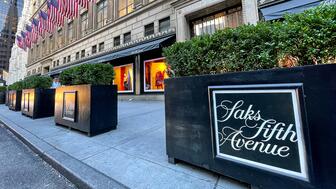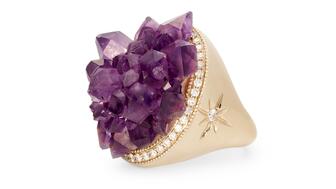Parent company Saks Global is also closing nearly all Saks Off 5th locations, a Neiman Marcus store, and 14 personal styling suites.
Forget Millennials, Meet the ‘Midult’
Generation X females between the ages of 35 and 55 have an awful lot of buying power, but experts say they’re being neglected in the fine jewelry market.
New York--Millennial spending habits have been discussed and analyzed ad nauseam over the past several years, and, according to experts, this laser focus may be to the detriment of retailers.
At the Vicenzaoro trade show held in January, Paola De Luca, creative director of trend forecasting company Trendvision, emphasized a different demographic of shoppers that she contends have been neglected by the jewelry industry: the “midult.”
The midult is a woman De Luca describes as being between the ages of 35 and 55 and having spending power.
“When we are 35 to 55, or even 60,” De Luca explained, “we have more money. We already have the basics (in our wardrobe). Now we want the collector piece and we are willing to spend more money for it.”
A midult essentially describes a Generation X female, born between 1960 and 1980.
After millennials and baby boomers, Gen X is the third largest generation in America, according to a report by media management software company Centro. They make up 25 percent of U.S. adults at a population of 60 million.
(Though Centro’s study doesn’t break down the demographic group into percentage of females versus males, in MetLife’s latest study on the group done in 2009, the firm had it split pretty evenly at 50-50).
Centro cites a statistic from an American Express and Harrison Group study, saying that Gen X represents 29 percent of net worth dollars and 31 percent of total income dollars in the country, making it the generation with more spending power than any other.
The term “midult” is trademarked by a British media website of the same name that caters content to middle-age women. (According to De Luca, these women make up the most powerful consumer group in the U.K., with eight million falling into this category.)
In its mission statement, The Midult website says it represents, “a new definition for a new generation … We wanted to take a fresh look at the power and potential of women like us: funny, digitally literate, and extremely anxious.”
They’re definitely correct on the digitally literate aspect.
While not raised with the internet, Gen X has embraced it wholeheartedly. According to trend forecasting company WGSN, 84 percent of British 35- to 44-year-olds are daily internet users, compared to 82 percent of British millennials.
And earlier this year, The New York Times published a story on the results of a Nielsen study that found that
“The digital impact from millennials has worked its way upstream to older demographics, and it is key for retailers and manufacturers to understand the giant digital footprint this segment maintains,” said Ben Smithee, CEO of digital marketing consultancy The Smithee Group.
The Self-Purchasing Customer
While luxury markets continuously look for ways to connect with millennials who prioritize spending on experiences, the fine jewelry industry may be better served by paying attention to their generational predecessors.
“In my view, the ‘midult’ woman is the most powerful and overlooked customer of fine jewelry today,” said Amanda Gizzi, Jewelers of America’s director of public relations and events. “She has been in the work force for over fifteen years and is established in her career. She makes her own money and isn’t afraid to spend some of it on herself.”
As retirement becomes more delayed, the midult consumer only gains strength.
“The digital impact from millennials has worked its way upstream to older demographics, and it is key for retailers and manufacturers to understand the giant digital footprint this segment maintains.”--Ben Smithee, The Smithee Group.Their purchasing power can be shown in examples such as that of Moda Operandi, the e-commerce company that specializes in online “trunk shows” and allows customers to pre-order looks straight off fashion runways. According to De Luca, the midult is the target woman for the luxury e-tailer.
“(Moda Operandi products are) selling online for thousands of euros or dollars, and they’re targeting these women. Yes, there’s a millennial market, but very few girls who are 25 years old can buy a $5,000 dress,” she said.
In its “The Faces of the New Jewelry Consumer” report published last September, luxury and jewelry consumer market research firm MVI Marketing cited a study conducted by American Express and the Harrison Group that said a quarter of women in households with at least $100,000 of discretionary income had purchased jewelry for themselves, not just for an event.
“The self-purchasing woman is being ignored or underserved by the traditional jewelry industry and as such she’s going elsewhere to purchase jewelry, not in traditional specialty jewelry retail stores but in department stores and non-traditional spaces,” MVI CEO Marty Hurwitz said.
Hurwitz noted that a self-purchasing midult buys to accessorize and is doing so with pieces that are trendy, colorful and retail for between $95 and $995, with the younger Generation X consumers purchasing at the low end of that price range, and vice versa.
Yet traditional jewelry stores lack color, he added, because white diamond jewelry makes up such a large part of inventory. He said there is also an absence of styles that use color at price points the majority of self-purchasing women want to buy.
Hurwitz thinks that the fine jewelry industry can learn from other retail sectors such as shoes.
“The same self-purchasing consumer is buying four to six pairs of shoes a year on average from an array of different stores and online vendors and at a wide range of price points. Jewelry has done nothing to go after that woman. We can’t even get them to buy one product a year,” Hurwitz said.
“We need to find ways to cater to what is a very significant spending population that is willing to spend on shoes and handbags and belts and clothing consistently throughout the year. They just don’t really spend that much on jewelry because nobody is inviting them to do it.”
Finding Solutions
With generations spanning 20 years, there are, of course, nuances to be found within demographics.
Smithee explained that millennial lifestyle trends, like living at home longer, also are reflective of those at the younger end of the Generation X spectrum, a factor on which jewelers can capitalize.
“We need to find ways to cater to what is a very significant spending population that is willing to spend on shoes and handbags and belts and clothing consistently throughout the year. They just don’t really spend that much on jewelry because nobody is inviting them to do it.”-- Marty Hurwitz, MVI“You have a great hybrid of older millennials, now in their mid-30s, and younger Gen Xers who provide a large set of disposable income,” he said. “This cohort represents the most pivotal changes in life stages when it comes to opportunities for jewelers to create a meaningful relationship. From delayed marriages, child birth, anniversaries and self-purchasers, this segment provides the most opportunity for jewelers to convert sales now.”
Hurwitz suggested looking to brands that are finding success--like Kendra Scott, Alex and Ani, Pandora and the Australian Emma & Roe--and emulating their businesses, which rely on collecting, layering and stacking jewelry.
JA’s Gizzi, meanwhile, stressed that midults rely both on online shopping and in-person store experiences.
RELATED CONTENT: Why Omnichannel Retail is Key to Success in 2017
“Like most generations today, midult women are researching and shopping online, so having a strong web and social media presence is a no-brainer,” she said. “However, don’t overlook the power of having an in-person presence in the community. They are more likely to have loyalty to those who are in front of them and to whom they have a personal connection. These women are the gift givers. They want to treat those around them with special gifts and they are also more likely to treat themselves too.”
They’re also loyal to brands.
A 2011 Wall Street Journal article on the phenomenon of the self-purchasing customer concluded that stocking trusted brand names, from Todd Reed to Ippolita, is key to earning these consumers’ trust.
Experts interviewed for this article agree that millennial and even Generation Z spending habits should be paid attention to, but so should the buying patterns of the generation that came before them.
Gizzi concluded, “(The midult) grew up before the rise of the internet, yet is young enough to be fully immersed in all technological advancements. She expects high levels of customer service and rewards the stores and brands who offer it.
“Most importantly, she grew up with parents who deeply loved jewelry and all it stands for. That love was likely passed down to her and if the jewelry industry treats her well, she will pass that love down to her children.”
The Latest
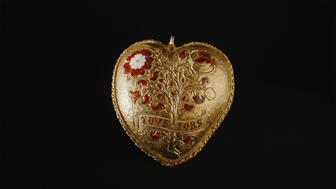
It is believed the 24-karat heart-shaped enameled pendant was made for an event marking the betrothal of Princess Mary in 1518.
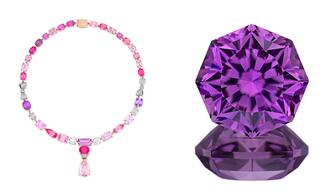
The AGTA Spectrum and Cutting Edge “Buyer’s Choice” award winners were announced at the Spectrum Awards Gala last week.
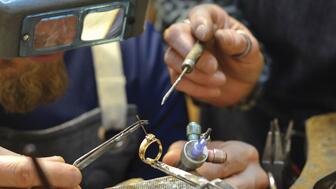
Launched in 2023, the program will help the passing of knowledge between generations and alleviate the shortage of bench jewelers.

The “Kering Generation Award x Jewelry” returns for its second year with “Second Chance, First Choice” as its theme.

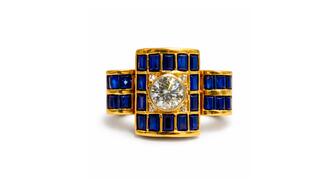
Sourced by For Future Reference Vintage, the yellow gold ring has a round center stone surrounded by step-cut sapphires.

The clothing and accessories chain announced last month it would be closing all of its stores.

Criminals are using cell jammers to disable alarms, but new technology like JamAlert™ can stop them.

The “Zales x Sweethearts” collection features three mystery heart charms engraved with classic sayings seen on the Valentine’s Day candies.

The event will include panel discussions, hands-on demonstrations of new digital manufacturing tools, and a jewelry design contest.

Registration is now open for The Jewelry Symposium, set to take place in Detroit from May 16-19.

Namibia has formally signed the Luanda Accord, while two key industry organizations pledged to join the Natural Diamond Council.

Lady Gaga, Cardi B, and Karol G also went with diamond jewelry for Bad Bunny’s Super Bowl halftime show honoring Puerto Rico.
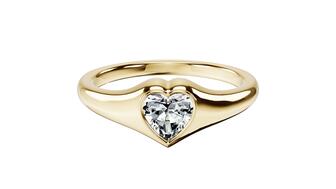
Jewelry is expected to be the No. 1 gift this year in terms of dollars spent.
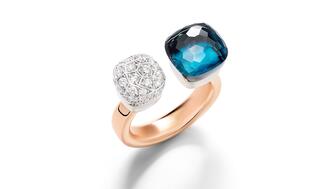
As star brand Gucci continues to struggle, the luxury titan plans to announce a new roadmap to return to growth.
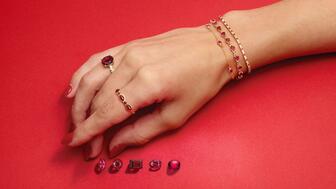
The new category asks entrants for “exceptional” interpretations of the supplier’s 2026 color of the year, which is “Signature Red.”

The White House issued an official statement on the deal, which will eliminate tariffs on loose natural diamonds and gemstones from India.

Entries for the jewelry design competition will be accepted through March 20.
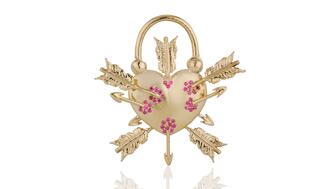
From heart motifs to pink pearls, Valentine’s Day is filled with jewelry imbued with love.

Prosecutors say the man attended arts and craft fairs claiming he was a third-generation jeweler who was a member of the Pueblo tribe.

New CEO Berta de Pablos-Barbier shared her priorities for the Danish jewelry company this year as part of its fourth-quarter results.
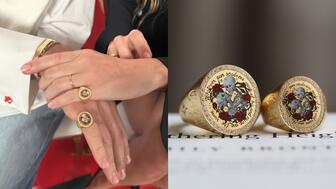
Our Piece of the Week picks are these bespoke rings the “Wuthering Heights” stars have been spotted wearing during the film’s press tour.
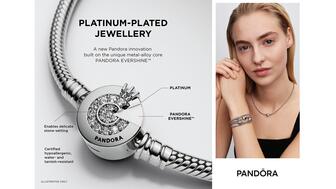
The introduction of platinum plating will reduce its reliance on silver amid volatile price swings, said Pandora.

It would be the third impairment charge in three years on De Beers Group, which continues to grapple with a “challenging” diamond market.
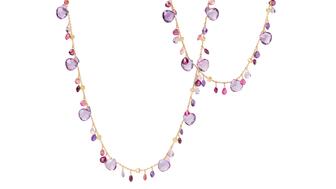
The “Paradise Amethyst” collection focuses on amethyst, pink tourmaline, garnet, and 18-karat yellow gold beads.

The retailer credited its Roberto Coin campaign, in part, for boosting its North America sales.

Sherry Smith unpacks independent retailers’ January performance and gives tips for navigating the slow-growth year ahead.

